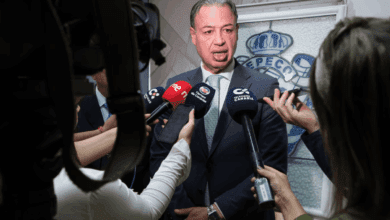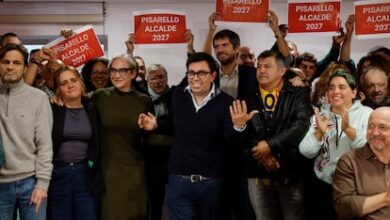
With the arrival of autumn, Spain’s political landscape has noticeably intensified: the Partido Popular (PP) finds itself in a difficult situation. Vox, long considered a party with limited electoral potential, is now unexpectedly showing record levels of support. Even in regions traditionally loyal to the PP, such as Galicia and Madrid, there is a marked increase in sympathy for the far-right. Internal polls indicate that the share of voters willing to support Vox in national elections is approaching 20%—a figure higher than most public rankings suggest.
Against this backdrop, Alberto Núñez Feijóo, the leader of the PP, is facing perhaps the most serious challenge of his leadership so far. His main task is to stop Vox’s growth without losing his own support. While Pedro Sánchez’s government remains stable, the PP is being forced to adjust its strategy. Feijóo has adopted tougher rhetoric, especially on migration, and has entered into open debate with Santiago Abascal’s party.
However, attempts to take over some of Vox’s agenda are causing internal divisions within the PP. The strict measures proposed in the new migration plan have energized the party’s conservative wing but raised concerns among moderates. Among the most controversial proposals are tougher citizenship requirements, restricting foreigners’ access to social benefits, and raising language standards. The author of these ideas is Rafael Núñez Huesca, previously associated with Vox and now close to the leadership in Madrid.
So far, the new strategy has not delivered the expected results: PP’s ratings are not rising, and in some cases are even declining compared to last year. Discontent is growing within the party, with some officials demanding immediate changes. Some believe that the constant focus on migration only strengthens Vox while PP is losing its own identity. In response to criticism, Feijóo is trying to shift the focus to the economy, promising lower taxes for the self-employed, cutting bureaucracy, and supporting small businesses.
At the same time, attacks on Vox are becoming increasingly personal. Feijóo compares the actions of the far right to those of separatists, stressing that PP is the only party capable of responsible governance. However, not everyone in the party supports this approach: some regional leaders believe it is better to ignore Vox than to engage in direct confrontation.
The summer proved challenging for PP: the situation was influenced by both external events and the party’s own missteps, such as controversial statements on religious issues and abortion. Some party leaders are calling for calm and the development of a long-term strategy, while others are demanding immediate action. As a result, PP is forced to balance the pressure from Vox with the need to maintain unity within the party.
In the coming months, Feijóo will have to find a way to restore PP’s leadership and stop the rise of the far right. Spanish politics is entering a period of uncertainty, where every decision could shift the balance of power for years to come.












